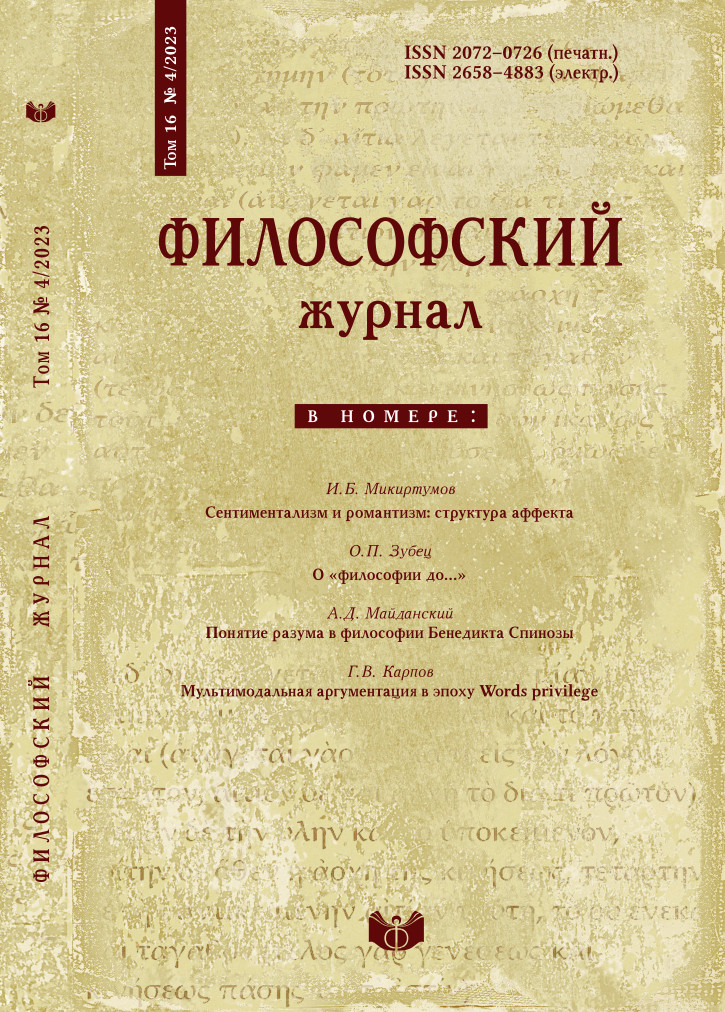On “The philosophy before…”
DOI:
https://doi.org/10.21146/2072-0726-2023-16-4-70-87Keywords:
Philosophy after Auschwitz, “philosophy before…”, opposing a good life to life as such, differentiation of concepts, putting on a par with, killing, “non-definable being”Abstract
Understanding Auschwitz in “philosophy after…” requires its continuation in the “philosophy before…”, in considering philosophical thought from the point of view of the extent to which it is responsible for Auschwitz itself. The article attempts to see “philosophy before…” through the prism of one question: what is its attitude to the destruction of the “non-definable being”, the central figure of Auschwitz, that person who is deprived of all the qualities and definitions the concept of a person is associated with: dignity, reason, speech, morality and so on. A number of ideas and ways of thought, recognized as fundamental for philosophy and culture, allow and even mediate the destruction of such a person. We are talking about opposing a good life to life as such, about justifying the murder of the non-virtuous and the bodily deficient, and in general – killing on the basis of moral considerations; about the differentiation of concepts, including killing, on the basis of circumstances, motives and intentions, means, results, with the maximum spread of moral and legal evaluations, up to “humane” killing, which puts killing as givenness to the blind zone of philosophy. The theoretical basis of this line of thought is the rejection of the understanding of the act as a single and only way of being, of the identity of the act and the actor. The complicity of philosophy in the destruction of the “not to be defined” lies in the definition and constant transcendence of the concept of a human being: any setting of its border at the same time turns out to be the sanctioning of the murder of someone who is outside it (despite the fact that the prohibition on killing a person implies such a definition). Philosophy is also responsible for putting killing on a par with other vices. The thought of “philosophy before” gives rise to many questions, including why philosophy is moving away from the desire to think unity, to set the world through thought as an act, why it has taken the path of social servility. Philosophy cannot renounce rationality, definitions, conceptual speech, but it can make the act of non-murder its own foundation.






